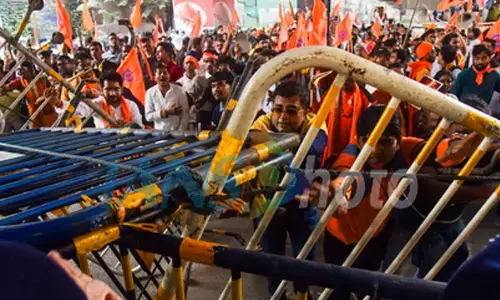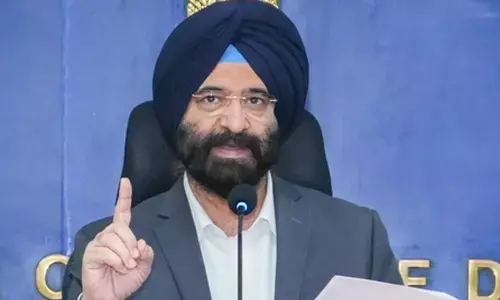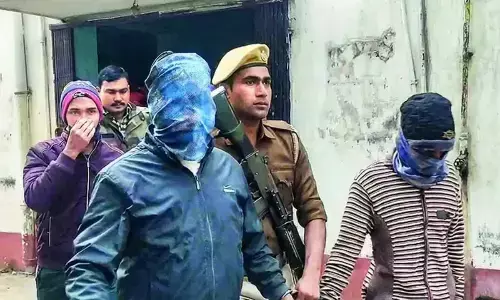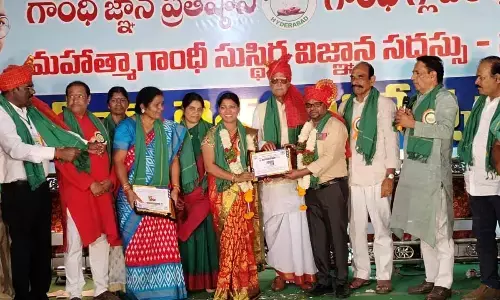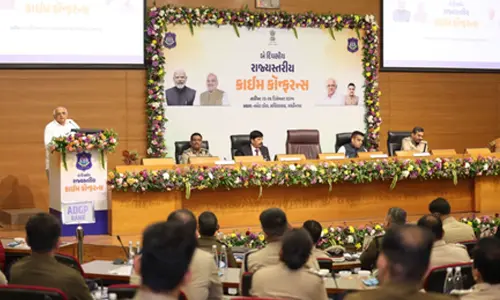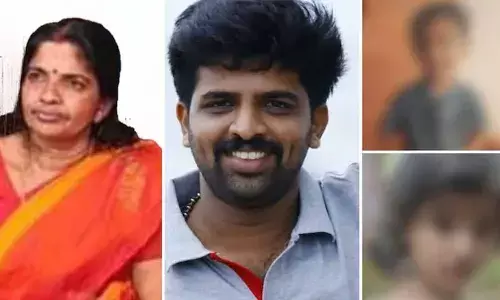MyVoice is to lift up the voices and experiences

Though the Supreme Court has put an end to the centuries old dispute over the Babri Masjid- Ram Janmabhoomi in Ayodhya through a landmark verdict, sharp differences seem to have emerged among members of the Uttar Pradesh Sunni Central Waqf Board over the filing of a review petition in the apex court against the verdict and accepting the five-acre land for a mosque.
Sunni Board should not accept five-acre land
Though the Supreme Court has put an end to the centuries old dispute over the Babri Masjid- Ram Janmabhoomi in Ayodhya through a landmark verdict, sharp differences seem to have emerged among members of the Uttar Pradesh Sunni Central Waqf Board over the filing of a review petition in the apex court against the verdict and accepting the five-acre land for a mosque.
Board chairman Zufar Faruqi has decided not to go in for a review of the Supreme Court verdict, inviting wrath of many of its members. It is anybody's common sense that the chairman cannot take a decision without holding a meeting.
It may be his personal view, but the Board decision should be taken only after its meeting. If All India Muslim Personal Law Board (AIMPLB) is going for a review in SC, then the Sunni Waqf Board should also take into account the sentiments of the Muslim community, even if there may not be much hope.
The offer of the five-acre land for a mosque is nothing but to keep the Muslims silent and should not be accepted. The Supreme Court accepted that the mosque was built in 1528. So, its existence is proven.
That it was desecrated in 1949 was also accepted and so was its demolition in 1992. Alternative land should not be accepted for a mosque. A review of the order should also be done in this case.
Dr Anjum Fatima, Hyderabad
Justice Gogoi: A controversial legal luminary
Finally, after delivering verdicts in some of the most significant cases, the controversial Supreme Court Justice Gogoi retired from service.
His name has been etched in history when a five-judge bench headed by him on 9 November brought an end to the Ayodhya land dispute, which dates back to even before the Supreme Court came into existence in 1950.
However, his tenure in the apex court will be remembered for being part of a presser by the 'gang of four' most senior judges in January last year which questioned the then CJI's way of functioning.
Justice Gogoi's tenure as CJI was not free of controversy as he faced allegations of sexual harassment, of which he was cleared.
It may be remembered that Justice Gogoi was heading a bench which gave clean chit to the Modi government twice. The same bench also warned Congress leader Rahul Gandhi for wrongly attributing certain remarks to the apex court in the Rafale case and asked him to be more careful in the future.
He also headed a bench which in a landmark verdict held that the office of the CJI is a public authority under the Right to Information Act.
On the same day, a 5-judge constitution bench headed by him struck down in entirety the rules formulated by the Centre on appointment and service conditions for members of various tribunals and referred to a larger bench the issue of examining the validity of the passage of the Finance Act 2017 as Money Bill.
Justice Gogoi also led a bench which monitored and ensured that NRC exercise in Assam, his native State, is completed within the set timeframe.
A lot of controversies plagued the National Register of Citizens (NRC), but he stood his ground and came out in public recently to defend the decision to hold the exercise to identify illegal immigrants.
All these define the controversial tenure of the first CJI from the north-eastern India.
Muralidhar Rao K, Medchal, Hyderabad
Ayodhya verdict is majoritarian victory
While delivering verdict in Babri Masjid dispute case, the Supreme Court observed that not faith but evidence of continued worship on the land should decide the issue.
It found this evidence to be in favour of the Ram worshippers; representations from the minority community also made claims of prayers there since 1856-57.
The references in the judgment to ancient texts, travelogues and other documents, and to the archaeological find of a structure below the demolished mosque, not necessarily Hindu — the excavation was ordered by the Allahabad High Court — seem puzzling: can a land title be decided by centuries-old history?
What precisely is the difference, then, between faith and evidence if both rely, to a greater or lesser extent, on belief? But what is not belief and not ancient is the planned demolition of the mosque in 1992.
Yet the court found the evidence strong enough to award the entire plot to a future temple, while condemning the mosque's demolition. In effect, therefore, the powers behind the demolition have got what they wanted.
While there is hope that the two communities will now move forward in peace, that 'peace' may have come at the cost of a shift towards the majority community, a fundamental change in India's polity.
As long as the battle for majoritarian triumph was political, there was hope for India's democratic secular identity; the Ayodhya verdict, maybe to prevent conflict, has changed that.
No wonder L K Advani, an accused in the Babri Masjid demolition, feels smugly vindicated. The senior leader of the Bharatiya Janata Party has the Bajrang Dal and the Vishwa Hindu Parishad in triumphant company.
Raghunath G, Vijayawada, AP








